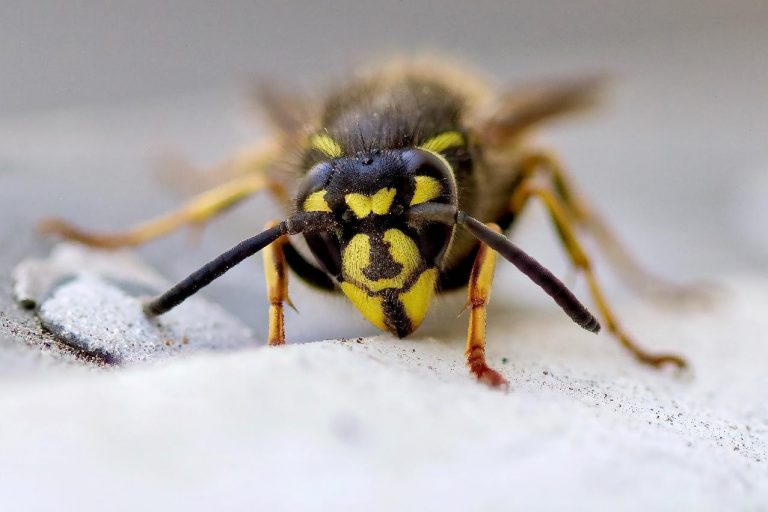There’s more to wasps than just being a buzzing nuisance. They’re a pain at picnics, agreed, but they actually do a lot more for humans than you might think.
We’re not saying that you should welcome a wasp nest into your garden with open arms, in fact, you should get professionals in right away for wasp removal if that’s the case.
However, these seven interesting wasp facts might change your opinion on them, hopefully making you less likely to run a mile the next time you come face-to-face with one.
Wasps play an important environmental role
We know wasps are nowhere near the level of bees when it comes to helping the environment, but they’re surprisingly not just here to scare us every time they zoom past!
Due to having fewer fine hairs on their bodies, wasps aren’t as efficient as bees when it comes to pollinating.
Instead, they play a big role in controlling plant pests which prevents common species becoming dominant. Some wasps will also pollinate flowers and crops and kill insects that carry diseases like mosquitos, making them ecologically important.
Without them, common pests would infest upon farmers’ crops and disrupt food production.
Wasps won’t return to an abandoned nest
Once a wasp’s life cycle comes to an end in the late summer, the nest becomes abandoned. In the spring the new queens choose to build new nests instead of moving back into the old ones from the previous summer.
There is some evidence to suggest that wasps will even avoid building a nest near to another one, so placing ‘fake wasp nests’ in your garden or countertops could deter a real nest from being built nearby. You can find these in garden centers, hardware shops, or online on Amazon.
Only female wasps can sting
Like bees, only female wasps can sting. Unlike bees, female wasps can sting multiple times (which is why so many people are afraid of them).
The stinger is modified from the egg-laying ovipositor which injects venom instead of eggs when they attack. Females only sting in self-defence when they feel threatened.
Males can act like they will sting out of instinct, but don’t have the ability to do so.
Wasps are omnivores
Wasps can survive by eating both plants and meat, with some even killing and eating bees to get their sugar fix. The majority of wasps hunt for food and will eat anything from fruit to meat and honey.
Hornets, a type of wasp, are the ones which hunt for other insects including bees.
Wasps start hunting for sugary foods at the end of August
By late August to September wasp nests are at full capacity with little larvae left in the nest, so they start hunting for sugary foods outside instead. They also look for carbohydrates at this time, so don’t be surprised if they head for your crisps as well as your fruit.
This is the time to avoid outdoor picnics as wasps are on the hunt for a sugar fix. You should also make sure to seal any outdoor bins you have which could attract wasps.
There are around 9,000 species of wasp in the UK
There are approximately 9,000 different species of wasp living in the UK and around 100,000 worldwide. Some of these species are so small that you would need a microscope to be able to see them.
There are around 250 types of larger wasps with stingers and only nine types of social wasps.
Wasps build their hexagonal paper nests from wood
When building a nest, wasps use chewed up wood and saliva to create a paper-like material. They take wood fibre from garden materials like composite decks and fences chew it into a pulp and then create their hexagonal nest; they make pretty good architects!
So, there we have it, a bunch of wasp facts you probably weren’t aware of. Hopefully now you’ll appreciate that they have a job to do, like all of us, and won’t be filled with fear the next time one rocks up uninvited!
If you do come across a wasp nest in your garden or around your house, make sure to call for a professional wasp removal company to get rid of it instead of doing it yourself.

